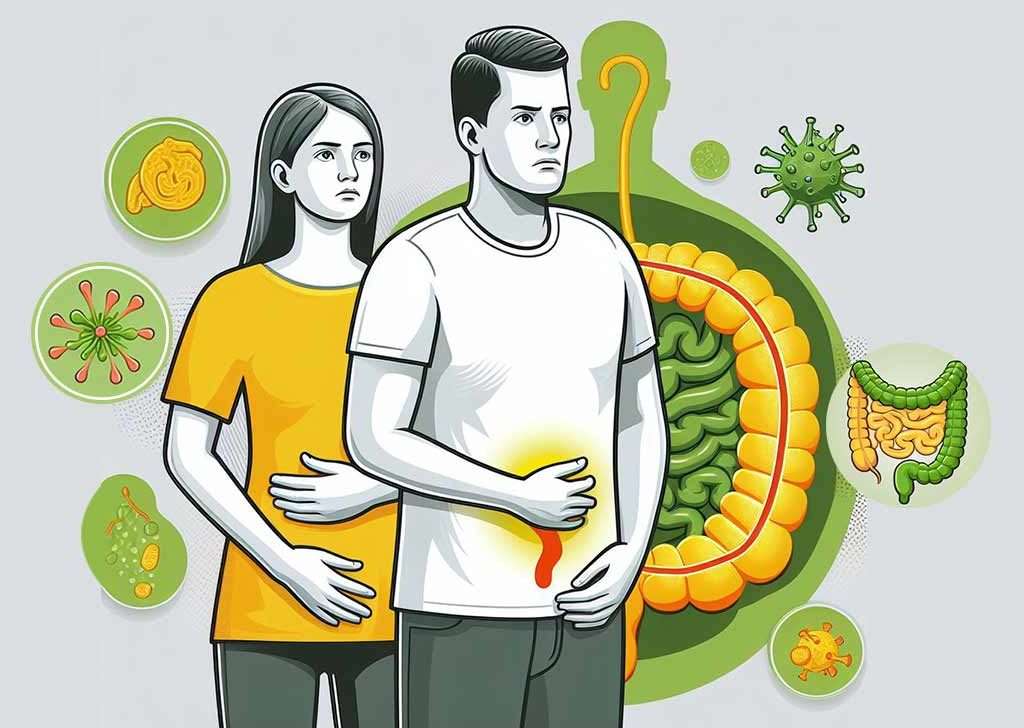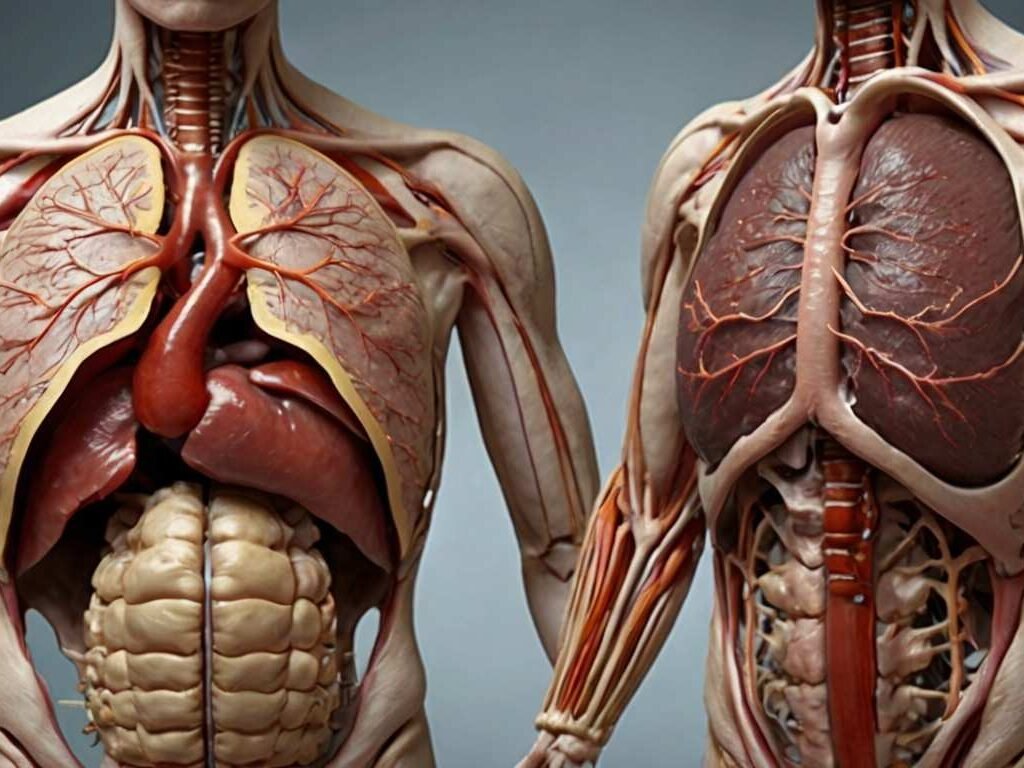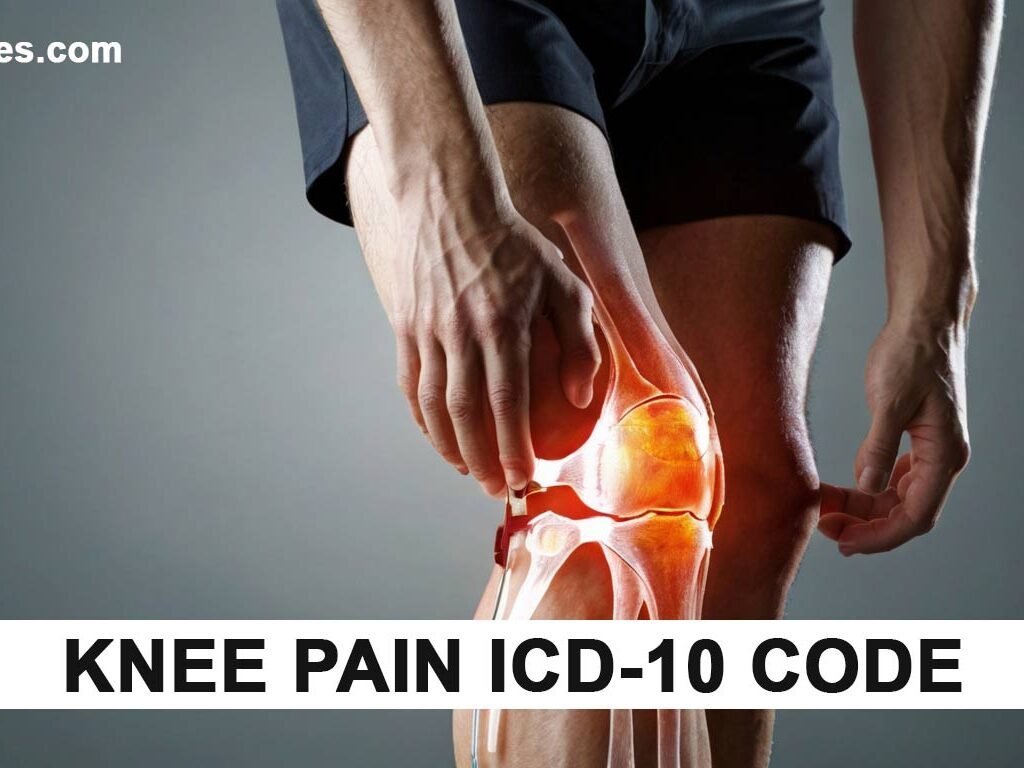Creating a 7-day meal plan for kidney disease requires careful attention to specific dietary restrictions, including limits on sodium, potassium, phosphorus, and protein. People with kidney disease may also need to manage fluid intake, depending on the stage of their condition. This plan focuses on nutritious, kidney-friendly foods while ensuring balance.
Before following this plan, it’s essential to consult a healthcare provider or dietitian for individualized advice based on the patient’s specific needs and stage of kidney disease.
Day 1
Breakfast:
- Oatmeal with blueberries (limit portion)
- A slice of white toast with a small amount of unsalted butter
- Herbal tea or water
Lunch:
- Turkey sandwich on white bread (low-sodium turkey, lettuce, and a slice of cucumber)
- Small side salad (lettuce, cucumber, and apple cider vinegar dressing)
- Water or allowed beverage
Snack:
- Low-sodium rice cakes with cream cheese
Dinner:
- Grilled chicken breast (small portion, no added salt)
- White rice
- Steamed green beans
- Water or a kidney-friendly beverage
Day 2
Breakfast:
- Scrambled egg whites
- White toast with jam (low-sugar)
- Water
Lunch:
- Low-sodium tuna salad with white bread
- Sliced bell peppers (limited portion)
- Herbal tea
Snack:
- Applesauce (unsweetened)
Dinner:
- Grilled salmon (small portion)
- Mashed potatoes (unsalted)
- Steamed carrots
- Water
Day 3
Breakfast:
- Low-sugar cereal with almond milk
- A small apple (if potassium is not restricted)
Lunch:
- Grilled chicken wrap (low-sodium tortilla, lettuce, and cucumber)
- Side of coleslaw (no mayo, vinegar-based dressing)
Snack:
- Unsalted crackers with cottage cheese
Dinner:
- Stir-fried beef strips (small portion)
- White rice
- Stir-fried cabbage
- Water or allowed beverage
Day 4
Breakfast:
- Pancakes (low-sodium, made with water or almond milk)
- A small amount of maple syrup
- Herbal tea
Lunch:
- Egg salad sandwich (white bread, low-sodium mayo, and lettuce)
- A small portion of sliced cucumber
Snack:
- Carrot sticks with low-fat cream cheese dip
Dinner:
- Baked tilapia
- Steamed white rice
- Zucchini sautéed with olive oil
- Water
Day 5
Breakfast:
- Low-sugar granola with almond milk
- A small banana (if potassium is allowed)
Lunch:
- Chicken salad with lettuce, cucumbers, and apple cider vinegar dressing
- White roll
Snack:
- Pear slices
Dinner:
- Beef and vegetable stew (carrots, celery, and white potatoes, no added salt)
- Water
Day 6
Breakfast:
- Egg white omelet with bell peppers
- White toast with unsalted butter
- Water or allowed beverage
Lunch:
- Low-sodium turkey and lettuce wrap (white tortilla)
- Sliced cucumber
Snack:
- Rice pudding (made with almond milk)
Dinner:
- Grilled chicken with white rice
- Steamed cauliflower
- Water
Day 7
Breakfast:
- Unsalted scrambled eggs
- A small croissant with a light jam
Lunch:
- Low-sodium chicken soup with white bread
- Steamed broccoli
Snack:
- Applesauce (unsweetened)
Dinner:
- Grilled fish (small portion)
- Steamed asparagus
- Mashed sweet potatoes (if potassium levels allow)
- Water
General Guidelines for Kidney-Friendly Meals:
- Protein: Limit protein intake as recommended by a healthcare provider. Choose lean sources like chicken, turkey, or fish in small portions.
- Sodium: Limit sodium to under 2,300 mg per day (or as directed by a healthcare professional). Avoid processed foods and add minimal salt during cooking.
- Potassium and Phosphorus: Restrict high-potassium (bananas, oranges, potatoes) and high-phosphorus foods (dairy, nuts) as necessary.
- Fluids: Monitor fluid intake if you are in an advanced stage of kidney disease.
- Grains: Choose white bread, white rice, and pasta over whole grains, which contain more phosphorus and potassium.
This meal plan provides flexibility, with options that are low in sodium, moderate in protein, and can be adjusted based on potassium and phosphorus needs.
What is the Creatinine Level for Stage 3 Kidney Disease?
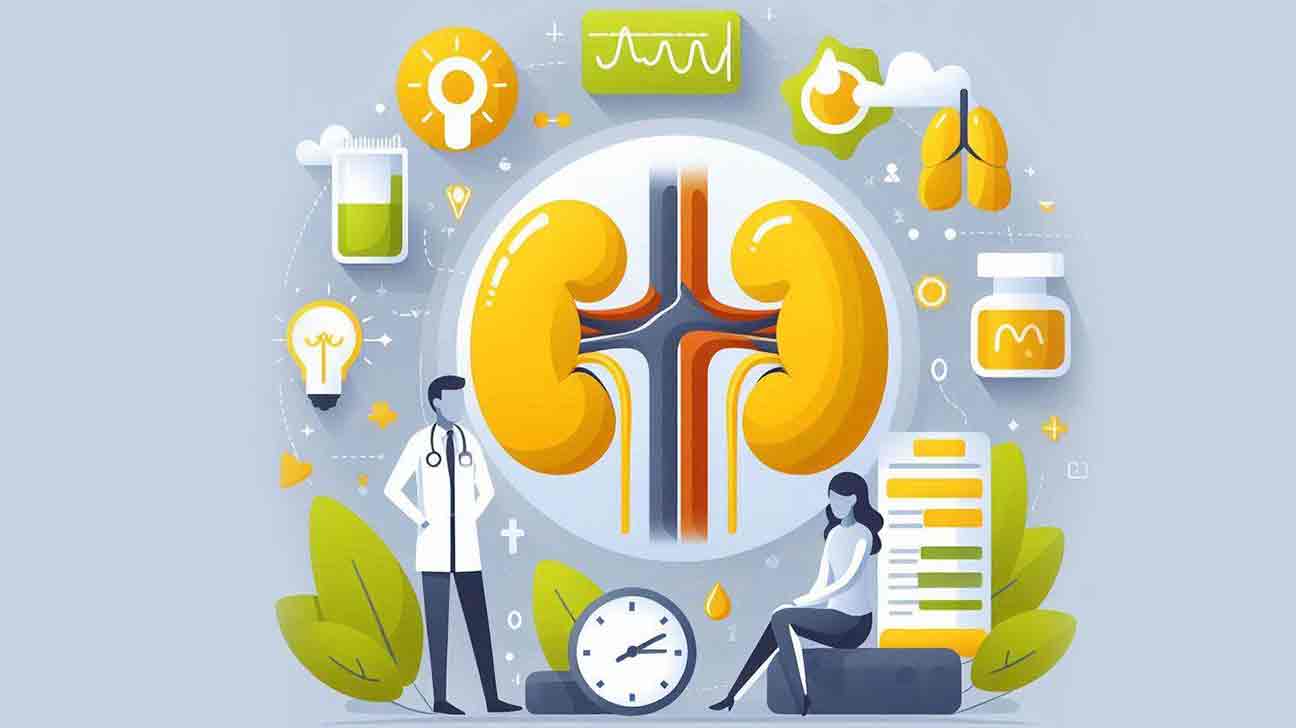
The creatinine level for stage 3 kidney disease ranges between 2.5 to 5 mg/dL. Stage 3 kidney disease is characterized by a moderate decrease in kidney function, with creatinine levels indicating a decline in kidney filtration.
Chronic kidney disease (CKD) progresses through stages, with stage 3 being a crucial point where proactive management can slow down the deterioration of kidney function. Understanding the creatinine level for stage 3 kidney disease is vital for individuals diagnosed with this condition.
With proper knowledge, individuals and healthcare providers can work collaboratively to implement suitable treatment plans and lifestyle modifications. This article delves into the significance of creatinine levels in stage 3 kidney disease, outlining the implications and necessary steps for managing this condition effectively. Understanding the relationship between creatinine levels and stage 3 kidney disease can empower individuals to make informed decisions and take proactive measures to maintain their kidney health.
Kidney Disease
Stages Of Chronic Kidney Disease
Chronic Kidney Disease (CKD) is a progressive condition that affects the functioning of the kidneys. It is divided into five stages, with stage 1 being the mildest and stage 5 being the most severe. Stage 3 Kidney Disease is an intermediate stage, indicating a moderate decline in kidney function. At this stage, the kidneys are still able to filter waste products from the blood, but not as efficiently as they should.
Here is an overview of the stages of CKD:
- Stage 1: Kidney damage with normal or increased GFR (glomerular filtration rate)
- Stage 2: Mild decrease in GFR
- Stage 3: Moderate decrease in GFR
- Stage 4: Severe decrease in GFR
- Stage 5: Kidney failure or end-stage renal disease (ESRD)
It is important to note that CKD is a progressive condition, meaning it worsens over time. Early detection and management of the disease can help slow down its progression and prevent further complications.
Characteristics Of Stage 3 Kidney Disease
Stage 3 Kidney Disease is characterized by a moderate decline in kidney function, with a GFR ranging from 30 to 59 mL/min. At this stage, patients may start experiencing symptoms and complications related to kidney dysfunction. Some common characteristics of stage 3 CKD include:
- Elevated levels of creatinine in the blood
- Increased blood pressure
- Fluid retention and swelling (edema)
- Changes in urine frequency and volume
- Anemia
- Bone and mineral disorders
- Increased risk of cardiovascular disease
It is essential for individuals with stage 3 CKD to work closely with their healthcare providers to manage the condition effectively. Lifestyle modifications, such as a healthy diet, regular exercise, and medication adherence, can play a significant role in slowing down the progression of kidney disease and maintaining overall health.
Role Of Creatinine Level In Kidney Function
Kidneys are one of the most essential organs in our body, and they play a vital role in maintaining overall health. Kidneys filter out waste products and excess fluids from the bloodstream, and they also regulate electrolytes and blood pressure. Creatinine is a waste product produced by muscles and is filtered out by the kidneys. It is a marker used to evaluate kidney function. In stage 3 kidney disease, the creatinine level starts to increase, which can indicate significant kidney damage. In this blog post, we will discuss the role of creatinine level in kidney function, and the importance of monitoring creatinine levels in patients with stage 3 kidney disease.
Creatinine As A Marker For Kidney Function
Creatinine is a byproduct of muscle metabolism, and it is filtered out by the kidneys. In healthy individuals, the kidneys excrete creatinine efficiently, and the level of creatinine in the blood remains stable. However, in patients with kidney disease, the kidneys’ ability to filter creatinine decreases, and the level of creatinine in the blood increases. Creatinine level is an important marker used to evaluate kidney function. The higher the creatinine level, the more severe the kidney damage. The creatinine level is used to determine the stage of kidney disease, and it is also used to monitor the progression of the disease.
Doctors use creatinine level in conjunction with the estimated glomerular filtration rate (eGFR) to assess kidney function. The eGFR is a calculation that estimates how well the kidneys are filtering waste from the bloodstream. The eGFR takes into account the creatinine level, age, sex, and race. A low eGFR and high creatinine level indicate that the kidneys are not functioning properly.
Importance Of Monitoring Creatinine Levels
Monitoring creatinine levels is crucial for patients with stage 3 kidney disease. In stage 3, the kidneys have lost more than half of their function, and the creatinine level starts to rise. Monitoring the creatinine level helps doctors determine the stage of kidney disease and the progression of the disease. It also helps doctors adjust the treatment plan to slow down the progression of the disease and prevent kidney failure.
Patients with stage 3 kidney disease should have their creatinine level checked regularly. The frequency of testing depends on the severity of the disease and the treatment plan. Patients with stage 3 kidney disease should also make lifestyle changes to protect their kidneys, such as eating a healthy diet, exercising regularly, and avoiding smoking and excessive alcohol consumption.
In conclusion, creatinine level is an important marker used to evaluate kidney function, and monitoring creatinine levels is crucial for patients with stage 3 kidney disease. Regular testing and lifestyle changes can help slow down the progression of the disease and prevent kidney failure.
Normal Creatinine Levels
Introduction paragraph about What is the Creatinine Level for Stage 3 Kidney Disease and Normal Creatinine Levels…
Factors Affecting Normal Creatinine Levels
When it comes to understanding normal creatinine levels, it’s essential to consider the various factors that can affect these levels. Factors such as age, gender, muscle mass, and certain medications can influence the normal range of creatinine in the body. Here are some key factors that can impact normal creatinine levels:
- Age: As individuals age, their muscle mass tends to decrease, which can result in lower creatinine levels.
- Gender: Men generally have higher muscle mass than women, leading to slightly higher creatinine levels.
- Muscle Mass: Individuals with greater muscle mass typically have higher creatinine levels.
- Medications: Certain medications, such as muscle-building supplements or some antibiotics, can affect creatinine levels.
Measurement Units For Creatinine Levels
When measuring creatinine levels, it’s important to understand the different units used for this purpose. Creatinine levels are typically measured in either milligrams per deciliter (mg/dL) or micromoles per liter (μmol/L). Both units provide a measure of the concentration of creatinine in the blood, but they use different scales. The following table illustrates the conversion between these two measurement units:
| Milligrams per Deciliter (mg/dL) | Micromoles per Liter (μmol/L) |
|---|---|
| 1 | 88.4 |
| 2 | 176.8 |
| 3 | 265.2 |
| 4 | 353.6 |
| 5 | 442 |
Creatinine Levels In Stage 3 Kidney Disease
Chronic Kidney Disease (CKD) is a condition in which the kidneys gradually lose their functionality over time. Stage 3 of CKD is characterized by a moderate decrease in kidney function, with a glomerular filtration rate (GFR) of 30-59 ml/min. Creatinine is a waste product that is filtered out of the blood by the kidneys, and its levels are often used as an indicator of kidney function. In this blog post, we will discuss the significance of creatinine levels in stage 3 kidney disease.
Understanding Elevated Creatinine Levels
When the kidneys are functioning normally, creatinine levels in the blood are relatively stable. However, when the kidneys are not functioning properly, creatinine levels can become elevated. Elevated creatinine levels can be an early sign of kidney damage, and may indicate that the kidneys are not able to filter waste products from the blood as effectively as they should be.
Some common causes of elevated creatinine levels include:
- Dehydration
- Obstruction of the urinary tract
- Chronic kidney disease
- Heart failure
- Liver disease
If you have elevated creatinine levels, it is important to talk to your doctor to determine the underlying cause and to develop an appropriate treatment plan.
Significance Of Creatinine Levels In Stage 3 Kidney Disease
Creatinine levels can be a useful tool for monitoring kidney function in patients with stage 3 kidney disease. As the kidneys continue to lose function, creatinine levels will typically continue to rise. Monitoring creatinine levels over time can help doctors determine the progression of kidney disease and make adjustments to treatment plans as needed.
In addition to monitoring creatinine levels, doctors may also use other tests to evaluate kidney function in patients with stage 3 kidney disease. These tests may include:
| Test | What it measures |
|---|---|
| Estimated glomerular filtration rate (eGFR) | An estimate of how well the kidneys are filtering waste products from the blood |
| Blood urea nitrogen (BUN) | A measure of the amount of nitrogen in the blood that comes from the waste product urea |
| Urinalysis | An analysis of a urine sample to check for abnormalities |
If you have stage 3 kidney disease, it is important to work closely with your doctor to monitor your kidney function and to develop an appropriate treatment plan to help slow the progression of the disease.
Symptoms And Complications Of Stage 3 Kidney Disease
When it comes to stage 3 kidney disease, understanding the symptoms and potential complications is crucial for early detection and management. This stage is characterized by a moderate decrease in kidney function, with a creatinine level ranging from 2.1 to 5.0 mg/dL for men and 1.8 to 4.5 mg/dL for women. To ensure timely intervention, it is important to be aware of the common symptoms and potential complications associated with stage 3 kidney disease.
Common Symptoms
Stage 3 kidney disease often presents with a range of symptoms that can vary from person to person. While some individuals may not experience any noticeable symptoms, others may have several. Here are some of the common symptoms to watch out for:
- Blood in urine (hematuria)
- Swelling in the hands, feet, or ankles (edema)
- Fatigue and weakness
- Increased or decreased urine output
- High blood pressure (hypertension)
- Changes in appetite and weight loss
- Difficulty sleeping
- Itching and dry skin
It is important to note that these symptoms can also be associated with other health conditions, so it is essential to consult a healthcare professional for a proper diagnosis.
Potential Complications
Stage 3 kidney disease can lead to various complications if left untreated or not properly managed. Understanding these potential complications can help individuals take proactive measures to prevent further kidney damage. Some of the potential complications of stage 3 kidney disease include:
- Progression to advanced stages of kidney disease
- Increased risk of cardiovascular diseases, such as heart attacks and strokes
- Fluid and electrolyte imbalances
- Acidosis (build-up of acid in the body)
- Anemia (low red blood cell count)
- Bone diseases, such as osteoporosis
- Increased vulnerability to infections
It is essential to work closely with healthcare professionals to manage these complications and slow down the progression of kidney disease. Lifestyle modifications, dietary changes, and medications may be recommended to reduce the risk of complications and improve overall kidney function.
Managing Creatinine Levels In Stage 3 Kidney Disease
Managing Creatinine Levels in Stage 3 Kidney Disease is crucial for maintaining kidney function and overall health. Keeping creatinine levels within a healthy range can help slow down the progression of kidney disease and reduce the risk of complications.
Dietary Considerations
When managing creatinine levels in Stage 3 Kidney Disease, diet plays a key role. Here are some dietary considerations to help maintain optimal kidney function:
- Limit sodium intake to reduce fluid retention.
- Increase intake of fruits and vegetables for essential nutrients.
- Monitor protein consumption to ease the workload on the kidneys.
- Stay hydrated by drinking an adequate amount of water.
Medical Interventions
In addition to dietary changes, medical interventions are often necessary to manage creatinine levels in Stage 3 Kidney Disease. Here are some common medical interventions:
- Medications to control blood pressure and reduce proteinuria.
- Treatment for underlying conditions such as diabetes or hypertension.
- Regular monitoring of kidney function through blood tests and urine tests.
- Consultation with a nephrologist for specialized care and treatment plans.
Lifestyle Changes For Stage 3 Kidney Disease
Lifestyle Changes for Stage 3 Kidney Disease play a crucial role in managing the condition and improving overall health. In addition to medical treatment, incorporating specific lifestyle modifications can help individuals with Stage 3 Kidney Disease lead a healthier and more balanced life.
Exercise And Physical Activity
Regular exercise and physical activity can benefit individuals with Stage 3 Kidney Disease by improving overall health, managing weight, and enhancing cardiovascular function. Here are some key points to consider:
- Engage in low-impact exercises like walking, swimming, or cycling.
- Consult a healthcare provider or a renal dietitian for personalized exercise recommendations.
- Maintain a consistent exercise routine to promote muscle strength and flexibility.
Stress Management
Effective stress management is essential for individuals with Stage 3 Kidney Disease to reduce anxiety, enhance mental well-being, and support overall health. Consider the following strategies:
- Practice relaxation techniques such as deep breathing, meditation, or yoga.
- Engage in hobbies or activities that bring joy and relaxation.
- Seek support from friends, family, or a mental health professional if needed.
Prevention And Early Detection
Prevention and early detection play a crucial role in managing stage 3 kidney disease. By understanding the importance of regular check-ups and adopting healthy habits, individuals can potentially slow down the progression of the disease and improve their overall kidney health.
Importance Of Regular Check-ups
Regular check-ups are vital for monitoring creatinine levels and kidney function in individuals with stage 3 kidney disease. Early detection of any abnormalities allows healthcare providers to intervene promptly and implement appropriate treatment plans. These check-ups may include blood tests, urine tests, and blood pressure monitoring to assess the progression of the disease.
- Regular monitoring helps in detecting any complications early on.
- Timely check-ups enable prompt intervention to prevent further damage.
- Healthcare providers can adjust treatment plans based on test results.
Healthy Habits For Kidney Health
Adopting healthy habits is essential for individuals with stage 3 kidney disease to support kidney function and overall well-being. Lifestyle changes and dietary modifications can have a significant impact on slowing down the progression of the disease.
- Maintain a balanced diet low in salt, potassium, and phosphorus.
- Stay hydrated by drinking an adequate amount of water daily.
- Engage in regular physical activity to improve overall health.
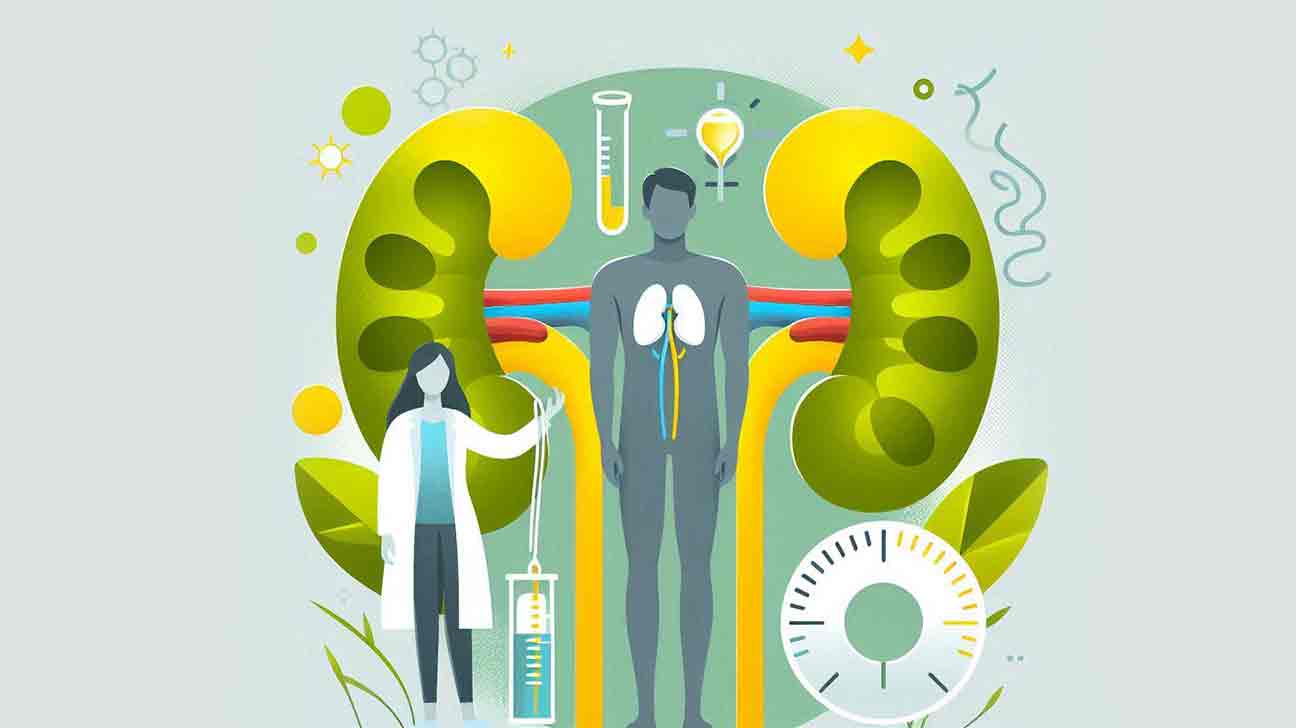
Treatment Options For Stage 3 Kidney Disease
Treatment Options for Stage 3 Kidney Disease are crucial to managing the condition effectively. Understanding the available medications and therapies, as well as being aware of the potential for disease progression, can significantly impact the quality of life for individuals with this stage of kidney disease.
Medication And Therapies
When addressing Stage 3 Kidney Disease, a combination of medication and therapies may be recommended. These options aim to slow down the progression of the disease and manage symptoms effectively. Key points to consider include:
- Medication: Prescribed medications such as ACE inhibitors or angiotensin II receptor blockers can help control blood pressure and protect the kidneys.
- Dietary Changes: A renal diet low in sodium, protein, and phosphorus may be advised to reduce the workload on the kidneys.
- Exercise: Regular physical activity can improve overall health and assist in managing conditions like diabetes and high blood pressure, which can worsen kidney disease.
- Supplements: Some patients may benefit from taking specific supplements like vitamin D or iron to address deficiencies.
Potential For Disease Progression
While Stage 3 Kidney Disease indicates a moderate decline in kidney function, it is essential to recognize the potential for disease progression. Monitoring and proactive management are critical aspects of care to prevent further deterioration. Key considerations include:
- Regular Monitoring: Routine check-ups and tests to assess kidney function and overall health are necessary to detect any changes early.
- Health Optimization: Managing underlying conditions like diabetes and hypertension can help slow down the progression of kidney disease.
- Lifestyle Modifications: Adopting a healthy lifestyle, including a balanced diet, regular exercise, and avoiding smoking, can positively impact kidney health.
- Consultation with Specialists: Collaborating with nephrologists and other healthcare providers can ensure personalized treatment plans and timely interventions.
Impact On Quality Of Life
Introduction paragraph about What is the Creatinine Level for Stage 3 Kidney Disease and Impact on Quality of Life…
Emotional Well-being
Living with stage 3 kidney disease can have a significant impact on a person’s emotional well-being. The knowledge that their kidney function is impaired can lead to feelings of fear, anxiety, and uncertainty about the future. It is not uncommon for individuals with stage 3 kidney disease to experience mood swings and emotional distress. The emotional toll of the disease can be overwhelming, affecting their overall quality of life.
Here are some ways in which stage 3 kidney disease can impact emotional well-being:
- Depression: The chronic nature of kidney disease and the potential need for dialysis or transplantation can contribute to feelings of sadness and hopelessness.
- Anxiety: Concerns about the progression of the disease, managing symptoms, and the impact on daily life can lead to heightened levels of anxiety.
- Stress: Managing medication regimens, doctor appointments, and lifestyle changes can be stressful, adding to the emotional burden.
- Isolation: The physical limitations imposed by kidney disease, such as dietary restrictions and fatigue, can make it challenging for individuals to participate in social activities, leading to feelings of isolation and loneliness.
It is important for individuals with stage 3 kidney disease to prioritize their emotional well-being. Seeking support from healthcare professionals, family, and friends can make a significant difference in managing the emotional challenges that come with the disease. Additionally, engaging in stress-reducing activities such as meditation, yoga, or counseling can help individuals cope with the emotional impact of stage 3 kidney disease.
Support Networks
Building a strong support network is crucial for individuals with stage 3 kidney disease. Having a reliable support system can provide emotional support, practical assistance, and a sense of belonging. Here are some ways in which support networks can positively impact the quality of life for individuals with stage 3 kidney disease:
- Emotional support: Friends, family, and support groups can offer a listening ear and understanding, providing comfort during difficult times.
- Practical assistance: Support networks can help with daily tasks, such as transportation to medical appointments, grocery shopping, or meal preparation, easing the burden on individuals with stage 3 kidney disease.
- Information and education: Support groups and online communities can provide valuable information about managing the disease, treatment options, and lifestyle changes.
- Motivation and encouragement: Being surrounded by people who believe in their ability to manage their condition can boost individuals’ confidence and motivation to take control of their health.
Support networks can be found through local kidney disease support groups, online forums, or social media communities. Connecting with others who have similar experiences can provide a sense of belonging and empowerment. Remember, no one should face stage 3 kidney disease alone, and building a support network is essential in improving the overall quality of life.
Research And Advancements
For people with stage 3 kidney disease, the creatinine level is a crucial factor to monitor. Creatinine is a waste product produced by the muscles and filtered out of the blood by healthy kidneys. When the kidneys are not functioning correctly, creatinine levels can build up in the blood, indicating kidney damage. However, researchers and medical professionals are continually working towards new advancements and better ways to manage kidney disease.
Current Studies
There are numerous studies currently underway to better understand kidney disease and find more effective treatments. Some of the areas being researched include:
- Genetics of kidney disease: Researchers are working to identify genetic markers that may increase an individual’s risk of developing kidney disease.
- Biomarker testing: Scientists are developing new tests to identify kidney disease earlier and more accurately.
- New medications: Pharmaceutical companies are researching and developing new medications to help manage kidney disease, including drugs to lower blood pressure and reduce inflammation.
Innovations In Kidney Disease Management
One area of innovation in kidney disease management is the use of telemedicine. Patients can now have virtual consultations with their doctors, reducing the need for in-person appointments and saving time and money. Additionally, advancements in dialysis technology have made this treatment more efficient and effective, with new machines that can filter blood more quickly and with fewer side effects. Another innovative approach is the use of regenerative medicine, which involves the use of stem cells to repair damaged kidney tissue. While still in the experimental stages, this treatment approach shows great promise for the future of kidney disease management.
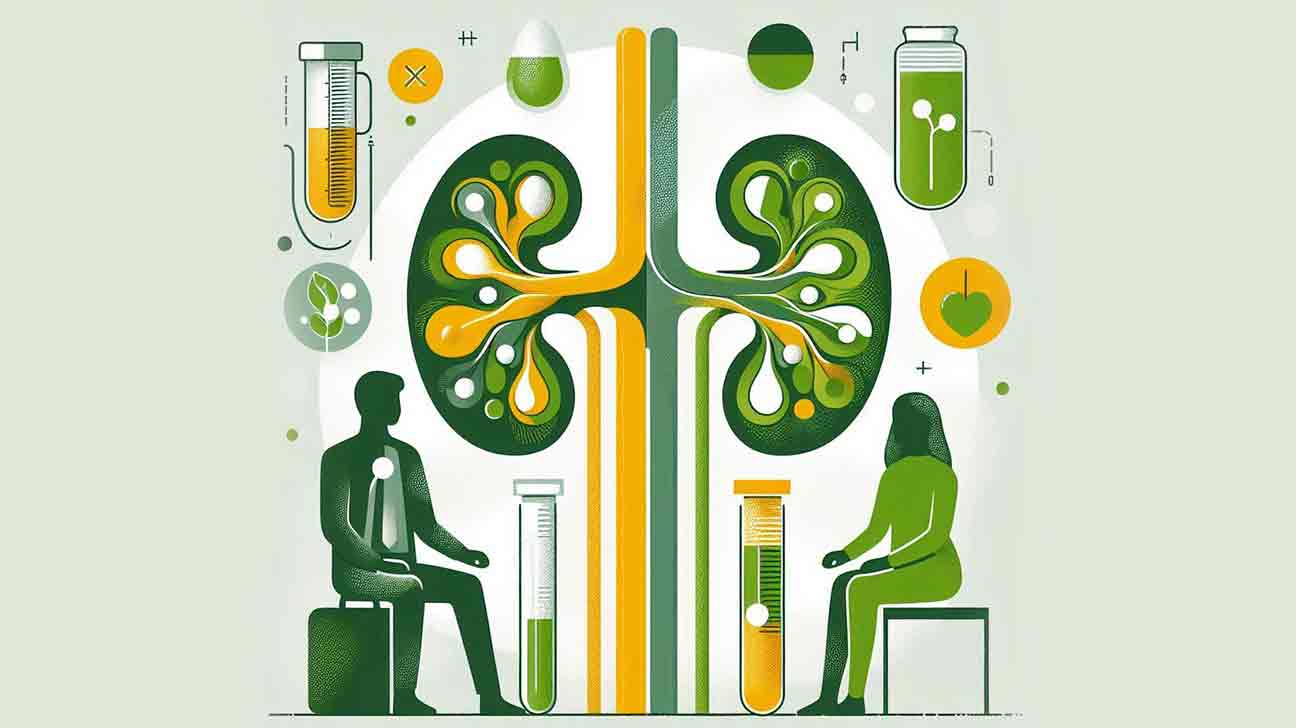
Financial And Social Implications
When dealing with stage 3 kidney disease, it’s essential to consider the financial and social implications that come with the condition. Managing the cost of treatment and accessing social support services can greatly impact the overall well-being of individuals with stage 3 kidney disease. Understanding the financial and social aspects of the disease is crucial for patients and their families to navigate the challenges effectively.
Cost Of Treatment
Managing stage 3 kidney disease involves various medical expenses, including regular check-ups, medications, and potential hospitalizations. The cost of treatment can significantly impact the financial stability of individuals and their families. It’s important to consider the following aspects related to the cost of treatment:
- The expenses associated with regular monitoring of kidney function and related tests.
- Costs of prescribed medications and potential side effects.
- Potential expenses for hospital stays and procedures such as dialysis or kidney transplant evaluations.
- Financial assistance programs and insurance coverage options available for managing the treatment costs.
Social Support Services
Aside from the financial burden, individuals with stage 3 kidney disease may also require social support services to cope with the emotional and psychological impact of the condition. These services can provide essential support and resources for patients and their families. Consider the following social support services:
- Counseling and mental health support to manage the emotional stress associated with the disease.
- Support groups and community resources for connecting with others facing similar challenges.
- Educational resources to help patients and families understand and cope with the implications of stage 3 kidney disease.
- Assistance programs for transportation to medical appointments and accessing necessary resources.
Educational Resources For Patients
As a patient with stage 3 kidney disease, it’s essential to have access to educational resources that help you understand the condition and manage it effectively. These resources can provide valuable information on how to maintain a healthy lifestyle, avoid complications, and improve your quality of life. In this article, we’ll explore some of the best educational resources available for patients with stage 3 kidney disease.
Understanding Kidney Disease
The first step in managing stage 3 kidney disease is to understand the condition and its causes. Educational resources that provide information on kidney disease can be incredibly helpful in this regard. Here are some of the best resources available:
- The American Kidney Fund offers a comprehensive guide to kidney disease, including information on symptoms, diagnosis, and treatment options.
- The National Kidney Foundation provides a wealth of resources on chronic kidney disease, including articles, videos, and educational programs.
- The National Institutes of Health offers a detailed overview of kidney disease, including information on the different stages of the condition.
Self-care Techniques
Once you understand your kidney disease, the next step is to learn self-care techniques that can help you manage the condition effectively. Here are some of the most effective self-care techniques for patients with stage 3 kidney disease:
- Eat a healthy diet that’s low in sodium and high in nutrients. A registered dietitian can help you create a meal plan that’s tailored to your needs.
- Stay hydrated by drinking plenty of water throughout the day.
- Avoid smoking and limit your alcohol intake.
- Get regular exercise, but consult your doctor before starting any new physical activity.
- Monitor your blood pressure and blood sugar levels regularly, and take any medications prescribed by your doctor.
By following these self-care techniques, you can help slow the progression of kidney disease and improve your overall health and well-being.
Frequently Asked Questions
What Level Of Creatinine Is Alarming?
A creatinine level that is considered alarming varies depending on the individual’s age, gender, and overall health. It is best to consult with a healthcare professional to determine if your creatinine level is within a normal range for you.
What Are The Numbers For Stage 3 Kidney Disease?
Stage 3 kidney disease is categorized by a moderate decrease in kidney function. The numbers for stage 3 kidney disease are measured by the glomerular filtration rate (GFR), which ranges from 30 to 59 mL/min/1. 73 m². It is important to seek medical advice for proper diagnosis and treatment.
What Are Signs That Stage 3 Kidney Disease Is Getting Worse?
Signs of worsening stage 3 kidney disease include high blood pressure, swelling, fatigue, and decreased urine output. Additionally, anemia and electrolyte imbalances may occur. Regular monitoring and medical advice are crucial.
What Are The Lab Results For Stage 3 Kidney Disease?
Lab results for stage 3 kidney disease typically show elevated creatinine levels and reduced glomerular filtration rate (GFR).
What Is Stage 3 Kidney Disease?
Stage 3 kidney disease is a moderate stage where the kidneys are functioning at a reduced capacity, but still able to filter waste from the blood.
What Are The Symptoms Of Stage 3 Kidney Disease?
Symptoms of stage 3 kidney disease may include fatigue, fluid retention, changes in urine output, and high blood pressure.
How Is Stage 3 Kidney Disease Diagnosed?
Stage 3 kidney disease is diagnosed through blood tests that measure creatinine levels and calculate the estimated glomerular filtration rate (eGFR).
What Is The Creatinine Level For Stage 3 Kidney Disease?
The creatinine level for stage 3 kidney disease typically ranges from 2. 1 to 5. 0 milligrams per deciliter (mg/dL) for men and 1. 8 to 4. 5 mg/dL for women.
Can Stage 3 Kidney Disease Be Reversed?
While stage 3 kidney disease cannot be reversed, proper management and treatment can slow down its progression and prevent further damage.
What Lifestyle Changes Can Help Manage Stage 3 Kidney Disease?
Managing stage 3 kidney disease involves adopting a healthy diet low in sodium, phosphorus, and potassium, maintaining a healthy weight, and staying physically active.
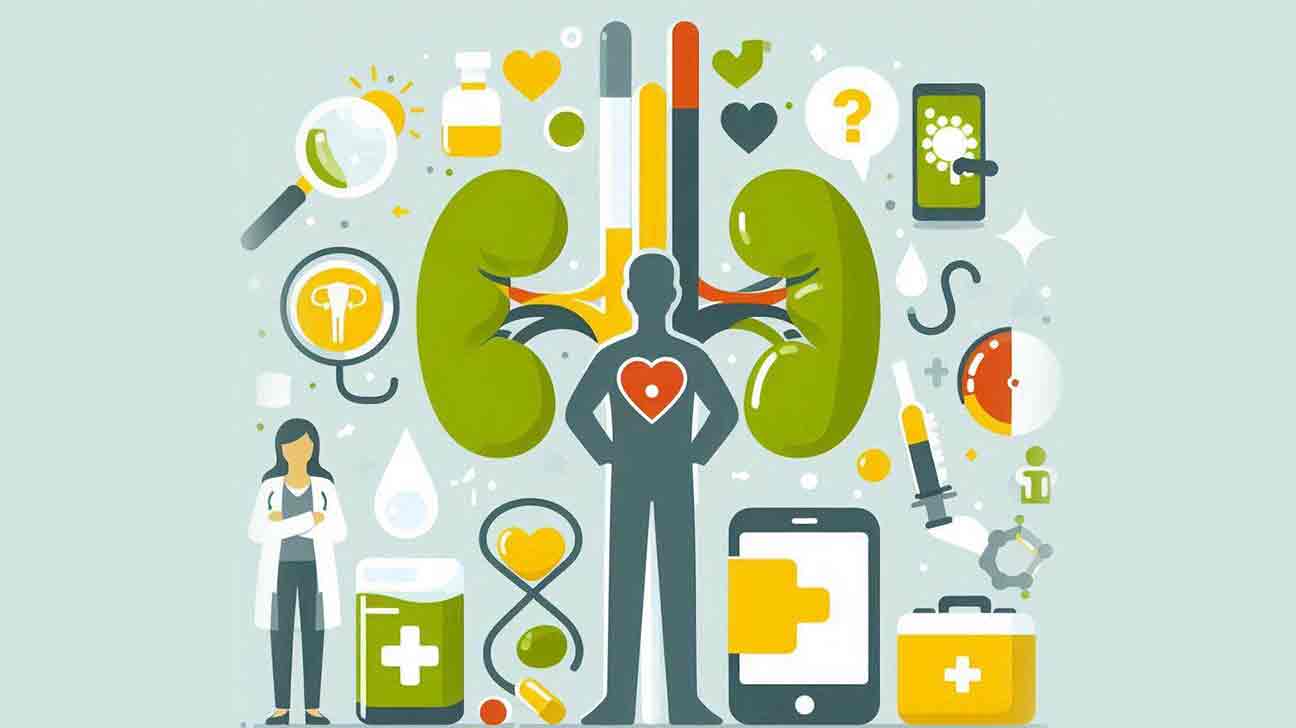
Conclusion
Understanding the creatinine level for stage 3 kidney disease is crucial for managing the condition. Maintaining regular check-ups and following a balanced diet can help in controlling creatinine levels. It is important to consult a healthcare professional for personalized guidance and treatment.
Stay informed and proactive about your kidney health.

